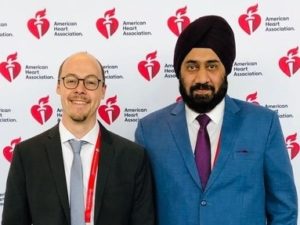
Translumina has announced the publication of 10-year follow-up data on its dual-drug polymer-free drug-eluting stent (DES), VIVO ISAR, in the Journal of the American College of Cardiology (JACC), describing the device’s efficacy and safety profile.
Many studies have proven that polymers are pro-inflammatory and may cause stent thrombosis. However, the use of polymers has been necessary in current generation DESs as they control the release kinetics of the drug by acting as a carrier for drug loading and release.
VIVO ISAR is the first technology that uses Probucol, an antioxidant and lipid lowering drug, as a carrier for releasing Sirolimus (an anti-restenotic drug) and thus creates for a polymer free DES platform, Translumina said in a press release.
“The 10-year result of VIVO ISAR is a major breakthrough in DES technology as it proves that synthetic polymers can be removed from a DES without compromising the efficacy of the DES. The excellent safety profile proven over 10 years also reassures the cardiologist for the longevity of the clinical results for treating complex coronary artery disease in high-risk patient subsets. This DES technology carries the great potential of significantly shortening the duration of dual-antiplatelet therapy,” said Adnan Kastrati, director, Cardiac Cath Lab, German Heart Centre, Munich, Germany and the lead investigator of ISAR TEST 5, the trial that compared VIVO ISAR to Endeavour Resolute (Medtronic).
“It is a proud moment for Translumina as we become the first company in the world to present 10-year data for two breakthrough DES technologies which have redefined the paradigms of safety and efficacy. With polymer-free VIVO ISAR, we are pioneers of third-generation DES where doctors will not be required to prescribe long antiplatelet therapies to patients undergoing PCI to overcome the ill effects of polymers as seen in first and second-generation DES,” said Gurmit Singh Chugh, co-founder, Translumina.












